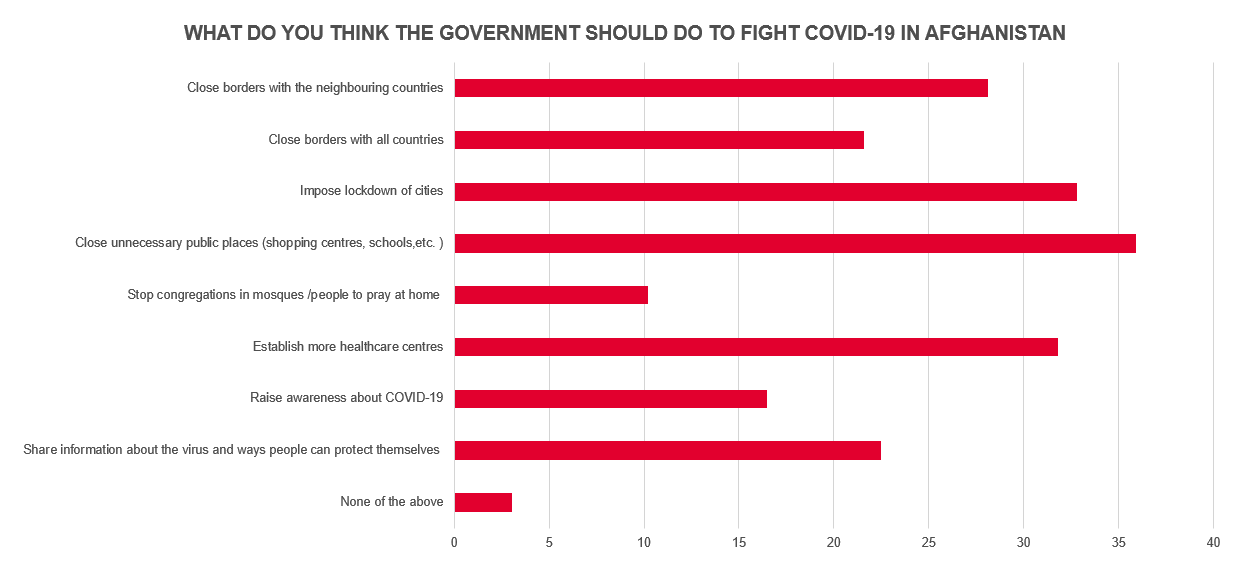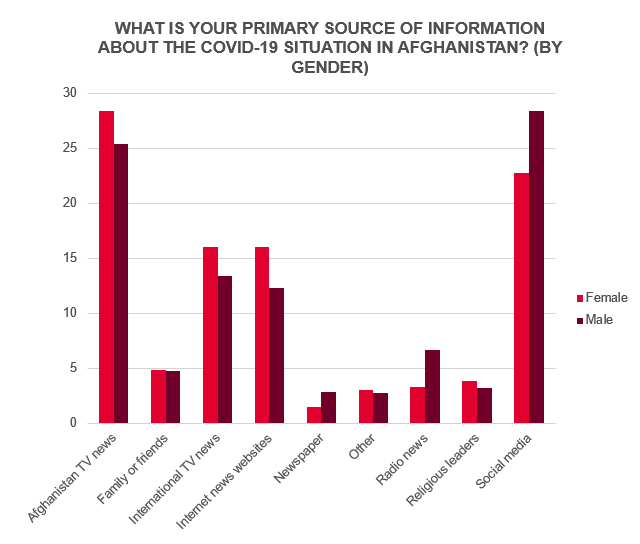
Rapid Study into Afghan Perceptions Towards COVID-19
Client: UNDP LOTFA | Pillar: Social Development | Duration: 1 Month
Thematic Areas: Health
Services Provided: Research, analysis



Challenge
COVID-19 has put a quarter of the world under various lockdowns, including Afghanistan
Economic pressures in Afghanistan mean that typical mitigation measures, like closing busy spaces such as markets, has a profound effect on the wellbeing of citizens
COVID-19 presents a new challenge to health systems in Afghanistan
Afghanistan has a weak healthcare system, as a result of decades of conflict
Rule of law in Afghanistan is weak with multiple armed nonstate actors including the Taliban and ISIS
There is a gap in information regarding what Afghans think about the virus and the challenges it may bring. This research will be used as an evidence base to inform the UNDP LOTFA’s programming in response to the effects of the virus on the Afghan people and the security sector.
Research Questions
What do Afghans know about the virus and its symptoms?
What measures do Afghans expect the government and security forces to take in order to respond to the crisis?
What are Afghans’ main worries about the COVID-19 pandemic?
Methodology
Rapid and Remote
Data needed to be collected quickly and using a do-no-harm approach, eliminating the possibility of an in-person survey
Therefore, the survey was rolled out through an in-app smart phone polling technique
Data collection took place over two weeks from 31st March to 13th April 2020
Sampling
2,000 Afghans nationwide were reached
Survey Instrument
The survey instrument was optimised for mobile usage and included 12 close-ended questions
The survey was live for two weeks
What We Did
Respondents self reported having a high knowledge of COVID-19 symptoms
The majority of respondents across age groups would report to a medical centre upon experiencing symptoms
26% of respondents over 70 reported that they would pray upon experiencing symptoms in addition to other measures such as reporting themselves to a medical centre, also chosen by 27% of respondents over 70
The majority of respondents across gender and age groups identify themselves as important figures in the fight against COVID-19
Respondents were generally supportive of the government imposing a lockdown to contain the virus but obtaining food and other necessities presented a major concern
31% of respondents reported that the government should open more healthcare centres in order to fight COVID-19 in Afghanistan
TV and social media emerged as the top sources of information for COVID-19 with 26% of respondents choosing Afghan TV as their main source of information and 27% choosing social media
Recommendations
As knowledge of COVID-19 symptoms was self-reported, further research should be conducted to explore whether Afghans are able to identify the symptoms accurately
The correct course of action upon experiencing COVID-19 symptoms should be publicised widely
Information about preventative measures Afghans can take to avoid the virus should be made available
Religious networks such as mullahs should be used to communicate safe behaviours around the virus
The government should reassure the public about the availability of essential items whilst taking the necessary measures to ensure citizens can access essential items under lockdown
Respondents showed concern over the availability of healthcare centres, as such the government should show the measures being taken to care for citizens who have contracted the virus
A multimedia approach to disseminating information about the crisis should be adopted
